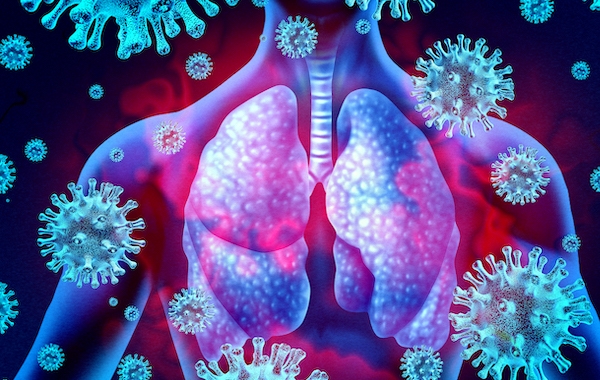How to Support Your Body’s Recovery During a Viral Infection

This article explores strategies for supporting the body’s recovery during a viral infection.
It begins by discussing the impact of viral infections on the body, emphasizing the need to strengthen the immune system to effectively fight off these pathogens.
The importance of proper hygiene practices in preventing viral spread is then highlighted.
Additionally, the article addresses the management of symptoms and discomfort during viral infections, as well as the role of a healthy diet, rest, and sleep in the recovery process.
Seeking medical advice and support is also encouraged.
Key Takeaways
- Viral infections have physiological and immunological effects on the human body.
- Enhancing immune system functionality can combat viral pathogens.
- Proper hygiene practices, especially hand hygiene and the use of face masks, are essential in preventing viral spread.
- Adequate rest, hydration, and a balanced diet rich in immune-boosting foods support the body’s recovery during a viral infection.
Understanding the Impact of Viral Infections on the Body
Viral infections can have significant physiological and immunological effects on the human body. Understanding viral replication and its impact on the respiratory system is crucial in comprehending the severity and potential complications associated with these infections.
Viral replication is the process by which viruses invade host cells, hijack their machinery, and multiply. In the case of respiratory viruses, such as influenza or SARS-CoV-2, they primarily target the respiratory tract, leading to symptoms like cough, sore throat, and shortness of breath.
The respiratory system plays a vital role in gas exchange, and when infected, it can become inflamed and compromised. This can result in respiratory distress, pneumonia, or even acute respiratory distress syndrome (ARDS). Additionally, viral replication in the respiratory tract can also lead to the shedding of the virus, facilitating its transmission to others.
Understanding these mechanisms is essential for developing effective preventive measures and treatment strategies for viral infections.
Strengthening the Immune System to Fight Viral Infections
Enhancing immune system functionality can facilitate the body’s ability to combat viral pathogens. In addition to traditional medical interventions, there is growing interest in using immune boosting supplements and natural remedies to support the immune system’s response to viral infections.
Some common immune boosting supplements include vitamin C, vitamin D, zinc, and elderberry extract. These supplements are believed to enhance immune cell function and reduce the duration and severity of viral infections. However, it is important to note that the efficacy of immune boosting supplements is still a subject of debate among researchers.
Natural remedies such as herbal teas, honey, and garlic are also suggested to possess immune supportive properties. While these remedies may provide some benefits, further research is needed to fully understand their effectiveness in fighting viral infections.
Overall, incorporating immune boosting supplements and natural remedies into one’s routine may provide additional support to the immune system during viral infections.
Implementing Proper Hygiene Practices to Prevent Viral Spread
Implementing proper hygiene practices is essential in preventing the spread of viruses. Hand hygiene plays a crucial role in reducing the transmission of infectious diseases. Regular handwashing with soap and water for at least 20 seconds is recommended, especially before eating, after using the restroom, and after coughing or sneezing. Hand sanitizers with at least 60% alcohol content can be used when soap and water are not readily available.
Additionally, the importance of face masks in preventing viral spread cannot be overlooked. Masks act as a physical barrier, preventing respiratory droplets from being released into the air and reducing the risk of inhaling infectious particles. It is advisable to wear masks in crowded public places and when social distancing is not possible.
Proper hygiene practices, including hand hygiene and the use of face masks, are crucial in breaking the chain of viral transmission and protecting public health.
Managing Symptoms and Discomfort During Viral Infections
Managing symptoms and discomfort during viral infections requires a comprehensive approach that addresses the physiological and psychological impact of the illness. This involves managing symptoms effectively and exploring natural remedies for discomfort. To achieve this, individuals can consider the following:
- Adequate rest and sleep: Rest allows the body to conserve energy and focus on healing.
- Hydration: Staying hydrated helps to alleviate symptoms such as sore throat and congestion.
- Nutritious diet: Consuming a balanced diet rich in fruits, vegetables, and immune-boosting foods can support the body’s recovery.
Natural remedies such as herbal teas, honey, and steam inhalation can provide relief from symptoms such as cough, congestion, and sore throat. It is important to note that these remedies should be used as complementary approaches and not as a substitute for medical advice. Consulting a healthcare professional is essential for managing symptoms effectively during viral infections.
Nourishing Your Body With a Healthy Diet During Viral Infections
This discussion focuses on the importance of nourishing the body with a healthy diet during viral infections. Essential nutrients play a crucial role in the recovery process, supporting the body’s immune system and promoting healing.
Additionally, making immune-boosting food choices and maintaining proper hydration are vital for overall well-being and enhancing the body’s ability to combat infections.
Essential Nutrients for Recovery
One key aspect of supporting the body’s recovery during a viral infection is ensuring an adequate intake of essential nutrients. Nutritional supplements can play a vital role in providing these necessary nutrients and supporting the immune system.
Certain vitamins and minerals have been shown to boost immune function and aid in the body’s ability to fight off infections. For example, vitamin C is known for its immune-supporting properties and can be found in supplements such as vitamin C tablets or powders. Zinc is another essential nutrient that plays a crucial role in immune function and can be taken as a supplement.
Additionally, probiotics, which are beneficial bacteria, can help support the immune system and improve gut health.
Overall, incorporating nutritional supplements that support immune function can be beneficial in promoting the body’s recovery during a viral infection.
Immune-Boosting Food Choices
Consuming a diet rich in fruits and vegetables, whole grains, and lean proteins provides a range of essential nutrients that can enhance immune function and support overall health. These immune-boosting food choices can help the body recover during a viral infection.
In addition to a healthy diet, incorporating immune boosting smoothie recipes and natural remedies for viral infections can further support the body’s recovery. Here are three key points to consider:
- Immune-boosting smoothie recipes: Incorporating ingredients such as citrus fruits, leafy greens, and ginger into smoothies can provide a concentrated dose of vitamins, minerals, and antioxidants that support immune function.
- Natural remedies for viral infections: Certain herbs and spices like turmeric, garlic, and elderberry have been traditionally used for their antiviral properties and may help alleviate symptoms and support immune response.
- Hydration: Staying hydrated is crucial for overall health and recovery. Drinking plenty of water and herbal teas can support immune function and help flush out toxins from the body.
Hydration and Healing
Hydration plays a crucial role in supporting the body’s healing process. Adequate hydration is essential for optimal functioning of all body systems, including the immune system. When the body is dehydrated, it can impair the immune response, making it more difficult for the body to fight off infections.
In addition, hydration is important for exercise performance and recovery. During exercise, the body loses water through sweat, and if not properly replenished, dehydration can occur. This can lead to decreased exercise performance and delay in the healing process.
To support healing and recovery, it is recommended to drink enough water throughout the day and during exercise. Natural remedies such as herbal teas and electrolyte-rich drinks can also aid in hydration and provide additional benefits for healing.
Rest and Sleep: Essential Factors in Recovery From Viral Infections
Rest and sleep play a crucial role in the recovery process from viral infections. Adequate rest allows the body to conserve energy and redirect it towards fighting off the infection. Sleep, on the other hand, promotes immune system function and aids in tissue repair. To support the body’s recovery during a viral infection, it is important to prioritize rest and sleep.
Here are four key strategies to consider:
- Establish a regular sleep schedule: Going to bed and waking up at consistent times can help regulate the body’s internal clock and improve the quality of sleep.
- Create a comfortable sleep environment: A dark, quiet, and cool bedroom can facilitate restful sleep and promote relaxation.
- Practice relaxation techniques: Techniques such as deep breathing exercises, meditation, and mindfulness can help promote a calm and stress-free environment, aiding in rest and sleep.
- Prioritize self-care: Taking care of one’s mental and emotional well-being is essential in supporting the body’s recovery. Engaging in activities that promote relaxation and stress reduction, such as reading, listening to calming music, or taking warm baths, can contribute to better rest and sleep quality.
Seeking Medical Advice and Support for Viral Infections
Seeking medical advice and support from healthcare professionals is crucial when dealing with viral infections as they can provide appropriate treatment options and guidance for managing symptoms. Medical professionals have the expertise and knowledge to accurately diagnose viral infections and recommend the most effective treatment strategies. They can also provide information on self-care techniques that can help support the body’s recovery. Self-care techniques, such as getting plenty of rest, staying hydrated, and practicing good hygiene, can help alleviate symptoms and prevent the spread of the infection. Additionally, medical professionals can offer advice on over-the-counter medications that can provide relief from common symptoms like fever, cough, and congestion. By seeking medical advice and support, individuals can ensure they are taking the necessary steps to promote their body’s recovery and prevent complications.
| Self-Care Techniques | Benefits |
|---|---|
| Getting plenty of rest | Allows the body to heal and recover |
| Staying hydrated | Helps flush out toxins and supports immune function |
| Practicing good hygiene | Reduces the risk of spreading the infection to others |
| Taking over-the-counter medications | Provides relief from common symptoms |
Frequently Asked Questions
What Are Some Common Symptoms of Viral Infections?
Common symptoms of viral infections include fever, cough, sore throat, runny or stuffy nose, body aches, fatigue, and headaches. Prevention measures and natural remedies can help alleviate these symptoms and support the body’s recovery.
Can I Take Over-The-Counter Medications to Treat Viral Infections?
Alternative treatment options for viral infections should be explored, as over-the-counter medications are not effective against viruses. Rest plays a crucial role in the recovery process, allowing the body to focus on fighting the infection.
Are There Any Specific Dietary Restrictions I Should Follow During a Viral Infection?
Dietary restrictions during a viral infection should focus on consuming immune-boosting foods. These foods, rich in vitamins and antioxidants, can support the body’s recovery. However, specific dietary recommendations may vary depending on the individual’s health condition and the type of viral infection.
How Long Do Viral Infections Typically Last?
The duration of viral infections varies depending on several factors. Common viral infections can last for a few days to a week, while more severe infections or those affecting immunocompromised individuals may persist for several weeks or longer.
Is It Safe to Exercise While Recovering From a Viral Infection?
Exercise precautions should be considered while recovering from a viral infection. Alternative treatments may be explored to support the body’s recovery. Further research is needed to determine the safety and effectiveness of exercise during this period.








